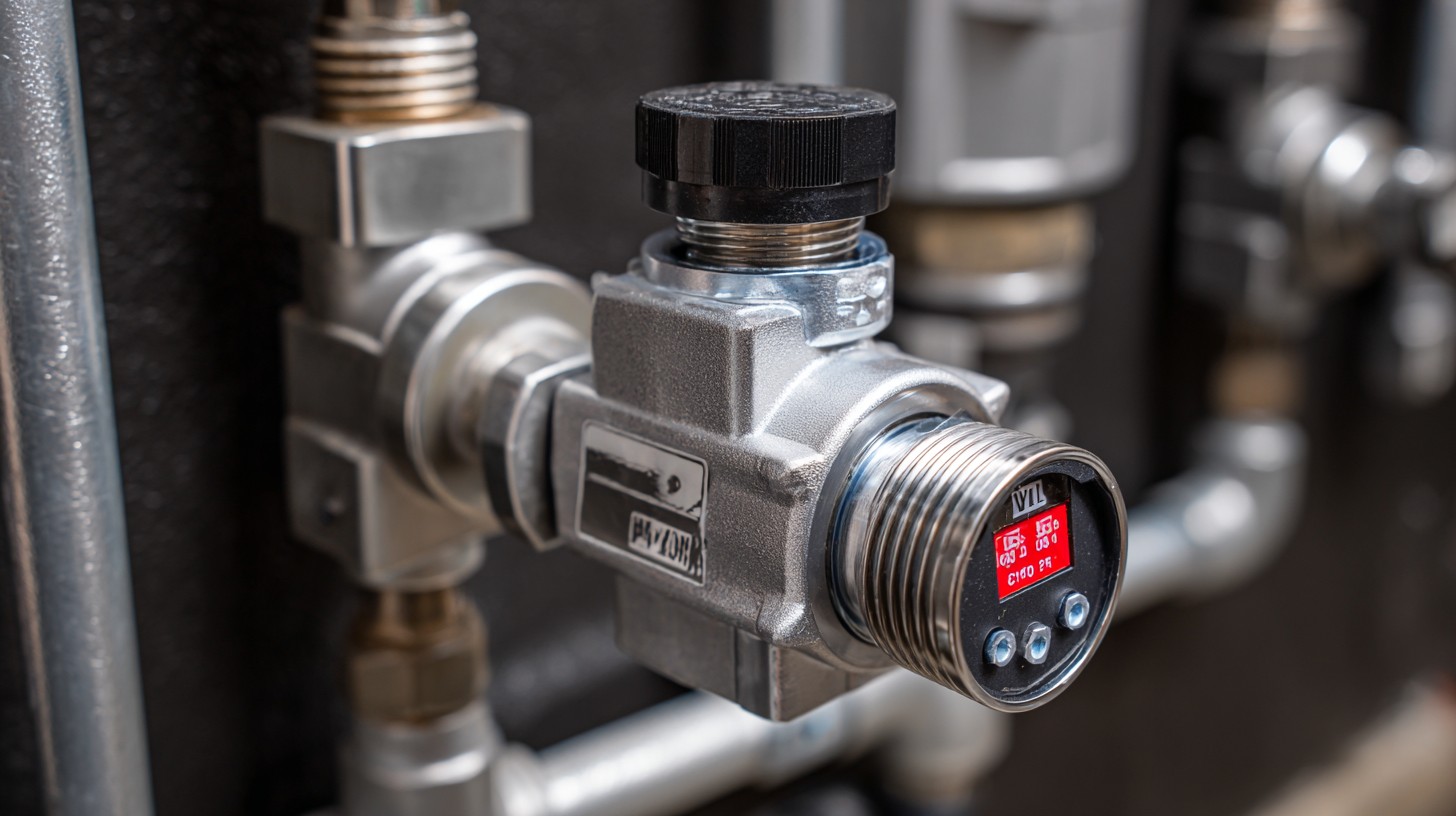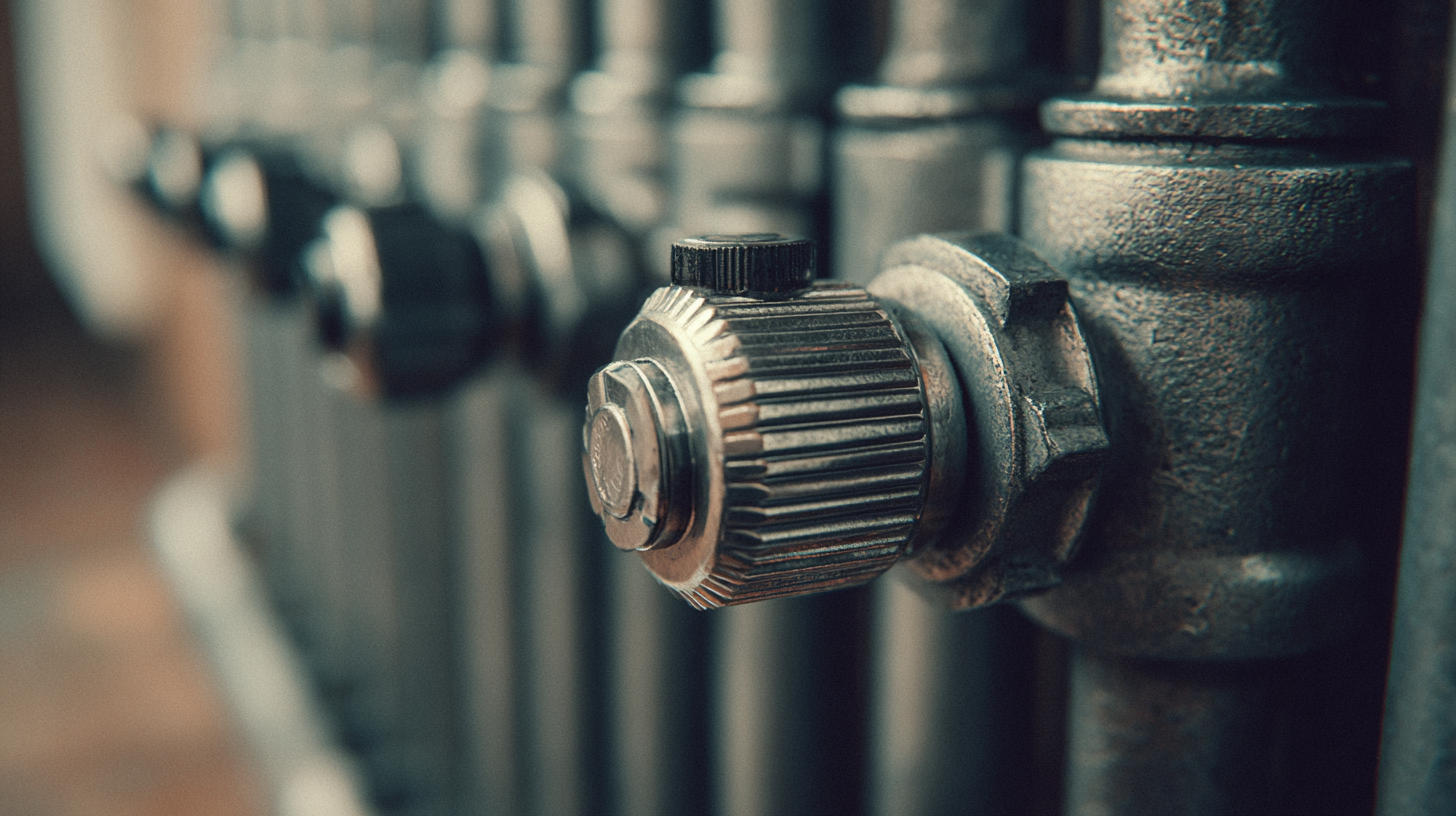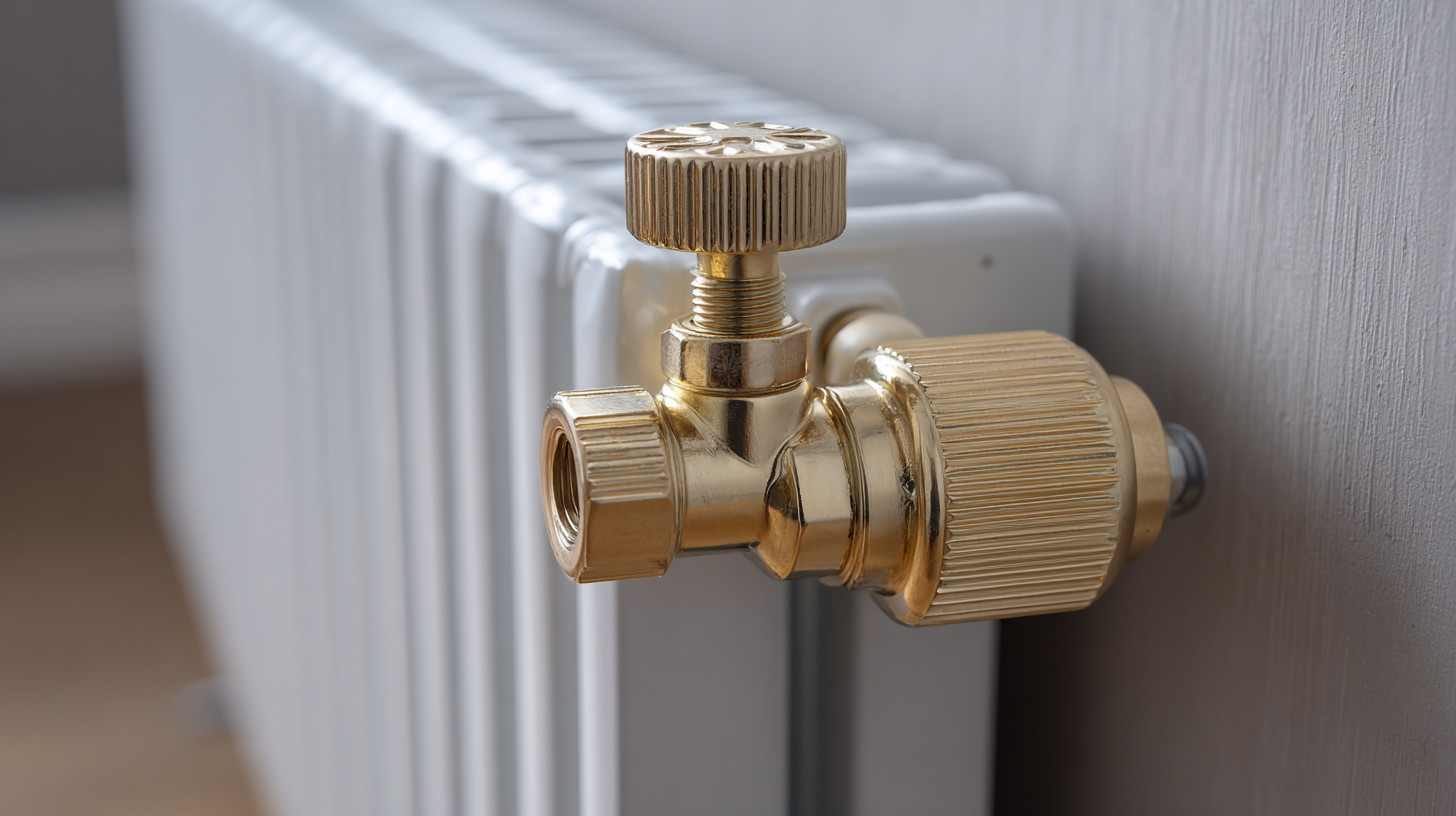In the rapidly evolving landscape of home heating technology, selecting the right Radiator Control Valve is crucial for optimizing energy efficiency and enhancing comfort. As we step into 2025, several key technological trends are poised to redefine how we manage our heating systems. From smart home integration to advanced materials that improve thermal performance, understanding these innovations will enable homeowners to make informed decisions about their heating solutions. This ultimate guide will explore the various types of Radiator Control Valves available, their benefits, and how they can contribute to a more sustainable living environment.

Whether you're upgrading your existing heating system or installing a new one, this comprehensive resource will help you select the best Radiator Control Valve to meet your unique needs and preferences.
Radiator control valves play a crucial role in managing the temperature and efficiency of your heating system. Understanding the different types of radiator control valves is essential for selecting the right one for your needs. There are several types available, including thermostatic radiator valves (TRVs), manual valves, and electronic control valves. TRVs, for instance, automatically adjust the flow of hot water to the radiator based on the room's temperature, ensuring optimal comfort and energy usage.
The hydronic radiators market has shown significant growth, estimated to reach a value of several billion dollars by 2025. This growth is driven by innovations in HVAC systems that emphasize energy efficiency and smart technology integration. The increasing popularity of smart thermostats further enhances the functionality of radiator control valves. By connecting these valves to smart systems, homeowners can monitor and adjust their heating remotely, leading to better energy management and cost savings. As consumers become more conscious of their energy consumption, the demand for advanced radiator control solutions is likely to continue rising.

When selecting a radiator control valve, several key factors should be taken into account to ensure optimal heating efficiency and comfort levels. One of the primary considerations is the compatibility of the valve with existing radiator systems. According to recent industry reports, over 60% of household heating issues are traced back to incompatibility between valves and radiators, which leads to suboptimal performance and increased energy costs. Therefore, understanding the specifications of your current system is crucial before making a choice.
Another important factor is the type of control features available in the valve. Many modern valves offer smart technology that enables individual room temperature control, which can significantly improve energy efficiency. A study indicates that homes equipped with smart radiator valves can reduce heating costs by up to 30%, as they allow for more precise temperature adjustments based on room usage. Furthermore, material quality affecting the valve’s durability and responsiveness should not be overlooked, as high-quality materials contribute significantly to the longevity and effectiveness of the heating system. By focusing on these factors, consumers can make informed decisions that enhance their heating experience while optimizing energy usage.
When selecting a radiator control valve, understanding the importance of quality manufacturing is crucial to ensure optimal performance. High-quality materials and precision engineering lead to valves that not only function effectively but also have a longer lifespan. Poorly manufactured valves may suffer from leaks, reduced efficiency, and a lack of responsiveness, ultimately compromising your heating system's effectiveness. Therefore, investing in well-crafted valves can significantly influence the overall heating performance of your home or building.
Another aspect to consider is how quality manufacturing impacts the valve's ability to regulate temperature. Valves made with advanced technology and rigorous quality control are designed to offer precise control over heating settings. This precision ensures a comfortable environment while minimizing energy consumption. On the other hand, inferior products may struggle to maintain consistent temperatures, leading to discomfort and increased energy costs. Choosing a radiator control valve from a reputable manufacturer not only safeguards your investment but also contributes to a more efficient and comfortable heating system.
When selecting the right radiator control valve, understanding the global manufacturing landscape is crucial. A recent industry report from Global Market Insights highlights that the market for radiator control valves is anticipated to reach over $2.5 billion by 2028. This growth is driven by the increasing demand for energy-efficient heating systems and smart home technologies. Evaluating manufacturers globally allows you to consider various factors such as quality, price, and technological advancements.
Tip: Always check the certifications of the manufacturers. Companies adhering to ISO 9001 standards are often a reliable choice, as they indicate a commitment to quality management systems. Additionally, many leading manufacturers offer detailed product specifications, which can be beneficial when comparing options.
In addition to certifications, consider the geographical location of the factory. Proximity can affect shipping costs and lead times significantly. A study by Research and Markets indicates that local sourcing can reduce supply chain risks by approximately 15%. Therefore, selecting a manufacturer closer to your location not only supports quicker deliveries but may also provide better after-sales support tailored to your specific needs.
When it comes to ensuring the longevity of your radiator control valve, regular maintenance is key. Start by routinely checking for any leaks around the valve connection. A small leak can lead to significant water loss and decreased efficiency over time. If you notice any moisture, it’s essential to address it promptly to avoid further damage to your heating system.
Additionally, it’s advisable to periodically clean the valve to remove any dust or debris that may have accumulated. This buildup can hinder the valve’s performance and efficiency, leading to inconsistent heating throughout your space. Use a soft cloth to wipe down the exterior and a small brush to dislodge any dirt from crevices. For optimal performance, consider flushing the system annually to eliminate sludge and sediment that can affect water flow.
Lastly, always keep an eye on your thermostat settings. Rapid temperature changes can put extra strain on your radiator control valve. By maintaining a steady temperature and avoiding extreme fluctuations, you help ensure the valve operates smoothly for years to come. Regular attention to these maintenance tips can significantly extend the lifespan of your radiator control valve, ensuring consistent heat and comfort in your home.

